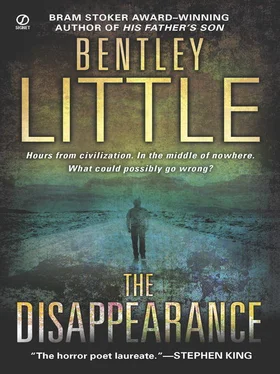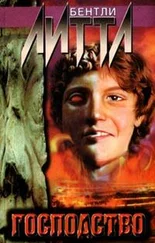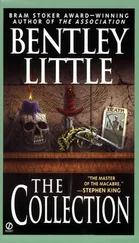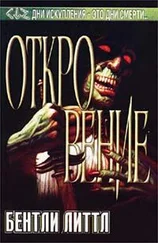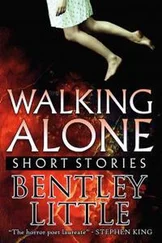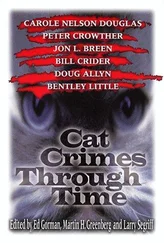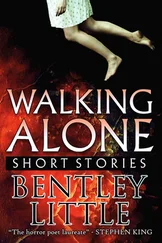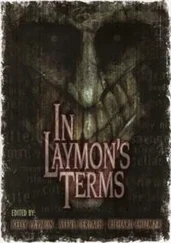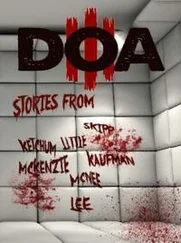So they’d dated, they’d gone to Homecoming and Winter Formal, they’d even had sex; but theirs was no great romance, and well before the end of the year, they’d had a sober discussion about their plans, their hopes, their futures, and had mutually decided to break up. He’d spent the rest of the school year alone and was the only one of his friends who hadn’t gone to the prom.
Coming to California had been liberating.
He’d actually had no intention of leaving Ohio and had already been accepted to Ohio State University. But in a weird confluence of circumstances, his Pell grant had come through, he’d received one thousand dollars from an arts foundation that had liked the essay he’d submitted and awarded it first place in their contest, and the company for which his dad worked had offered him a fifteen-thousand-dollar scholarship. He had not actually applied for the scholarship and still suspected his dad’s hand (though with a straight face his father consistently denied any involvement), but whatever the reason for the windfall, Gary was grateful. He would have simply taken the money, banked it and gone on to Ohio State as planned, but the scholarship’s stipulation was that the funds could be used only for tuition—use it or lose it— and on a whim, he sent out applications to colleges and universities all over the United States. It was late in the season, and many schools hadn’t replied, but by some miracle he’d been accepted to UCLA, where, thanks to his good grades and high SAT scores, he was offered additional financial aid to cover the gap between tuition and the amount of money he had available. It was a once-in-a-lifetime opportunity, and after discussing the situation with his parents, he decided to lock in his acceptance.
The three of them flew out in June, after graduation, to scope the place out.
Gary’s conception of Southern California had been formed by movies, music and television, but he was surprised and happy to discover that that conception was pretty close to accurate. They’d left Ohio on a muggy gray day and had landed in Los Angeles out of a bright blue sky. Temperate sea breezes swayed the fronds of palm trees that lined the streets, and while there were dirty industrial buildings beneath the edge of the raised freeway as they headed north toward UCLA, the overall impression was one of a clean, new city where good-looking people lived pleasant, untroubled lives.
Gary liked California immediately, and so did his parents. The guided tour of the campus only served to cement their positive impression of the state, and they’d flown back to Ohio two days later feeling exhilarated. Gary knew he would miss his friends when he moved out west, but the trade-offs were worth it. Besides, he’d be back for holidays. And they could always come out and visit.
At the end of August, he drove out to California by himself. He’d spent nearly half of the essay money on brakes and bearings for his crappy Celica, but it was money well spent because he made it to the coast without incident.
In California, he had fashioned a new persona. What was the use of moving someplace where no one knew you if you couldn’t reinvent yourself? So rather than the awkward, slightly nerdy guy he’d been back in Ohio, he became someone different, someone cooler. Although it was impossible for him to change who he really was, he could alter his backstory, jettison some of the baggage he carried, and the Gary Russell who emerged, while fundamentally the same, was more outgoing, more socially self-confident, and that translated into surprising success with the opposite sex.
As a freshman, he’d gone out with several different girls, though toward the end of the second semester, he’d ended up exclusively dating a communications major named Cassie, who introduced him to the campus film society, which hosted weekly screenings of cult movies and foreign films. That was how he’d met Reyn, the club president. Both hard-core David Lynch fans, the two of them had become fast friends, the friendship easily outlasting his brief romance with Cassie.
Reyn was a native Angeleno, and through him Gary became acquainted with entirely new aspects of Southern California. Rather than everything being centered on the school, he was introduced to a much broader swath of life: festivals, flea markets, parks, the beach, and a multitude of fun things to do for free or on the cheap. That summer, instead of going home to spend a couple of months with his parents and his old friends, Gary got a job working with Reyn at Universal Studios, although Reyn, back for his third year, was a tram driver, while Gary was a souvenir stand salesclerk who occasionally doubled for Count Dracula when the man who usually wandered around the park playing the character was out sick or off duty. While he did return to see his parents for a week near the end of August, he felt oddly out of place hanging out with his old friends at their old haunts, and he realized that over the past year Ohio had become not his home but the place he was from. California was now his home.
And life was good. His classes were challenging but fun, he’d scraped enough money together through grants and scholarships to pay tuition for the next year, and he had a work-study job on campus to pay for room and board. Socially, things had settled down, and while he wasn’t any more popular than he had been back in Ohio, he was happier. This was where he was meant to be.
That was about the time Reyn started going out with Stacy, then a student at LA City College, whom he’d met at Universal Studios. Stacy was a journalism major who wrote movie reviews for her school paper and occasionally freelanced for an indie film Web site, so the two of them had a lot in common. And that fall, Gary met Brian when the two of them were assigned to be lab partners in a chemistry class. Brian was from the Bay Area, not San Francisco proper but a suburb, and he’d transferred to UCLA to get a name-school diploma after finishing his general ed requirements at a community college. Long-haired and slackerish, he reminded Gary of Tom Weiss, one of his old high school buddies, and while in many ways the two of them were polar opposites, they meshed somehow and started hanging out.
He continued to date various young women he met in various classes but hooked up with Meg at one of the film society’s screenings. It was an oddball pairing of the dark satire How to Get Ahead in Advertising with the sunny musical How to Succeed in Business Without Really Trying , and afterward Meg had participated in one of Reyn’s panel discussions. He was never quite sure how their relationship had become as serious as it had, but it progressed quickly from casual to exclusive, and soon afterward Gary found himself living with the unspoken assumption that they were to be permanently a couple. He liked Meg, they never fought, but theirs was not a romantic romance. Though he couldn’t put his finger on it, something seemed missing, something wasn’t there, and he was secretly grateful when she abruptly dumped him.
Joan was different.
Gary wasn’t one of those rubes who’d been brainwashed by books and movies to believe that there was only One True Love for each individual. But the fact remained that what he felt for Joan was deeper and truer than anything he’d felt before. A day into their relationship, he felt closer to her than he had to Meg after a year. Not only was she stunningly attractive, but she was a genuinely nice person. Their relationship was new, and in a lot of ways they were still getting to know each other, but as far as he was concerned, the two of them were amazingly in sync. Their tastes on a lot of things did not coincide, and their interests did not always match, but their attitudes did. Their approaches to life were very similar, and that went a long way toward paving over any minor differences they had.
Читать дальше
